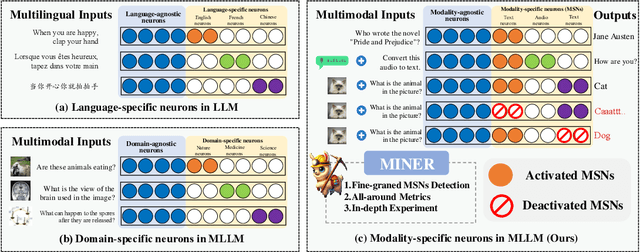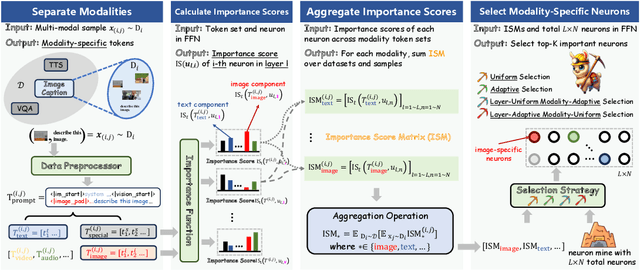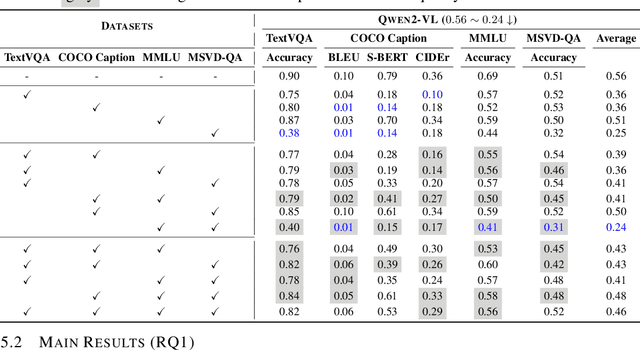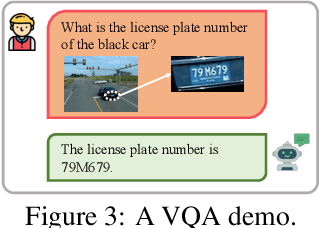MINER: Mining the Underlying Pattern of Modality-Specific Neurons in Multimodal Large Language Models
Paper and Code
Oct 07, 2024



In recent years, multimodal large language models (MLLMs) have significantly advanced, integrating more modalities into diverse applications. However, the lack of explainability remains a major barrier to their use in scenarios requiring decision transparency. Current neuron-level explanation paradigms mainly focus on knowledge localization or language- and domain-specific analyses, leaving the exploration of multimodality largely unaddressed. To tackle these challenges, we propose MINER, a transferable framework for mining modality-specific neurons (MSNs) in MLLMs, which comprises four stages: (1) modality separation, (2) importance score calculation, (3) importance score aggregation, (4) modality-specific neuron selection. Extensive experiments across six benchmarks and two representative MLLMs show that (I) deactivating ONLY 2% of MSNs significantly reduces MLLMs performance (0.56 to 0.24 for Qwen2-VL, 0.69 to 0.31 for Qwen2-Audio), (II) different modalities mainly converge in the lower layers, (III) MSNs influence how key information from various modalities converges to the last token, (IV) two intriguing phenomena worth further investigation, i.e., semantic probing and semantic telomeres. The source code is available at this URL.
 Add to Chrome
Add to Chrome Add to Firefox
Add to Firefox Add to Edge
Add to Edge